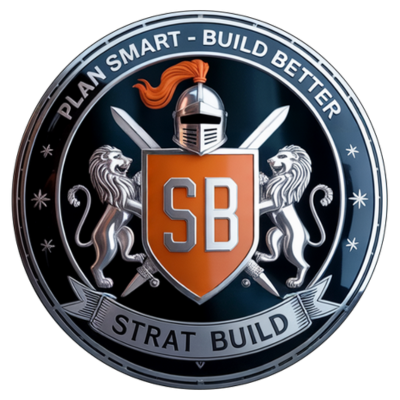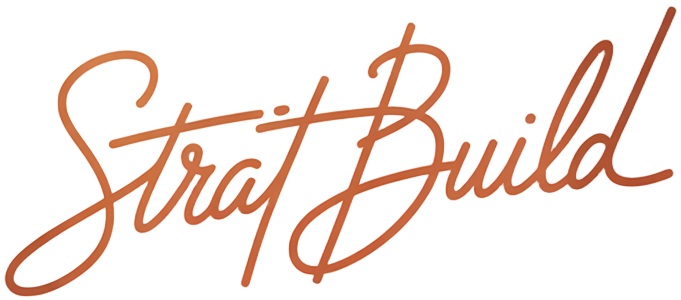
Developing a Comprehensive Construction Project Plan: A 2025 Perspective
Introduction
The construction industry in 2025 is experiencing unprecedented transformation, driven by technological advancements, regulatory changes, and an increased focus on sustainability and operational excellence. Developing a robust construction project plan is more critical than ever, as it not only ensures project success but also positions firms to remain competitive in a rapidly evolving landscape. This report provides an in-depth, step-by-step guide to developing a construction project plan, integrating contemporary best practices, digital tools, and compliance standards, and is informed by the latest and most reliable sources available as of June 2025.
1. Foundations of Construction Project Planning
1.1. Definition and Importance
A construction project plan is a comprehensive document that outlines the steps, resources, timelines, and strategies required to successfully complete a construction project. It serves as a roadmap, ensuring that all stakeholders are aligned, risks are managed, and objectives are met within budget and schedule constraints (Premier Construction Software, 2025).
Key Statistics:
- Only 47.9% of construction projects finish on budget.
- A mere 8% finish both on time and on budget (Elevate Constructionist, 2024).
These figures underscore the necessity of meticulous planning, leveraging both structured methodologies and modern digital tools.
2. Key Steps in Developing a Construction Project Plan
2.1. Project Initiation and Feasibility
2.1.1. Define Project Scope and Objectives
The first step is to clearly articulate the project’s scope, objectives, and deliverables. This includes:
- Outlining inclusions and exclusions.
- Identifying stakeholders and their roles.
- Establishing clear, measurable goals (Digital Blue Foam, 2025).
2.1.2. Conduct Feasibility Studies
Before proceeding, assess the project’s viability through:
- Site analysis.
- Environmental impact studies.
- Regulatory compliance checks (LetsBuild, 2025).
2.2. Detailed Planning
2.2.1. Work Breakdown Structure (WBS)
Develop a WBS to break the project into manageable tasks and sub-tasks. This structure:
- Facilitates resource allocation.
- Simplifies scheduling and monitoring (Smartsheet, 2025).
2.2.2. Scheduling
Leverage digital scheduling tools (e.g., Gantt charts, Primavera P6, Microsoft Project) to:
- Define task dependencies.
- Set milestones and deadlines.
- Allocate slack for unforeseen delays (ProjectManager, 2025).
2.2.3. Budgeting and Cost Control
Establish a robust budget that includes:
- Direct and indirect costs.
- Contingency reserves (typically 10% for unforeseen expenses).
- Ongoing cost tracking and variance analysis (Template.net, 2025).
2.2.4. Risk Management
Identify and assess potential risks, including:
- Health and safety hazards.
- Weather disruptions.
- Supply chain issues.
- Regulatory changes (BuildPartner, 2025).
Develop mitigation strategies and integrate them into the project schedule and budget.
2.2.5. Communication Plan
A detailed communication plan ensures:
- Regular updates to all stakeholders.
- Clear channels for issue escalation.
- Documentation of changes and approvals (Contractor Foreman, 2025).
2.3. Execution and Monitoring
2.3.1. Task Assignment and Resource Allocation
Assign tasks based on expertise and availability. Use digital platforms for:
- Real-time collaboration.
- Resource leveling.
- Progress tracking (LetsBuild, 2025).
2.3.2. Quality Control
Implement quality assurance protocols at every stage:
- Regular inspections.
- Compliance with standards (e.g., ISO 19650 for data management, ANSI/ASSP A10.2-2025 for safety).
- Use of digital twins for ongoing monitoring (AZOBuild, 2024).
2.3.3. Performance Monitoring
Track project performance using KPIs such as:
- Schedule adherence.
- Budget variance.
- Safety incidents.
- Quality metrics (ProjectManager, 2025).
2.4. Adaptation and Change Management
2.4.1. Change Order Management
Document and approve all changes using standardized forms. This process:
- Prevents scope creep.
- Maintains budget and schedule integrity (ProjectManager, 2025).
2.4.2. Continuous Feedback and Improvement
Solicit feedback from stakeholders and adapt the plan as necessary. The plan should be a living document, updated in response to:
- On-site realities.
- Regulatory updates.
- Technological advancements (Contractor Foreman, 2025).
2.5. Project Closure
2.5.1. Final Inspections and Handover
Conduct final inspections to ensure all deliverables meet quality and compliance standards. Prepare handover documentation for the client.
2.5.2. Post-Project Evaluation
Hold a post-mortem meeting to:
- Review successes and lessons learned.
- Finalize the budget and close out contracts.
- Archive project data for future reference (LetsBuild, 2025).
3. Integrating Digital Transformation and Best Practices
3.1. Embracing Digital Tools
Digital transformation is central to modern construction planning. Key technologies include:
- Building Information Modeling (BIM): Facilitates collaboration and 3D visualization.
- IoT Sensors: Enable real-time monitoring of site conditions and equipment.
- Digital Twins: Allow for proactive maintenance and performance tracking (AZOBuild, 2024).
3.2. Sustainability and Compliance
Sustainability is now a non-negotiable aspect of construction planning. Best practices include:
- Modular construction and use of recycled materials.
- Compliance with green building certifications (e.g., LEED).
- Adoption of circular economy principles for waste management (AZOBuild, 2024).
3.3. Workforce Development
Given the ongoing labor shortage (estimated need for 500,000 additional workers in 2025), invest in:
- Training programs aligned with ANSI/ASSP A10.2-2025.
- Virtual and augmented reality safety training.
- Continuous upskilling to keep pace with technological change (ISHN, 2025).
Conclusion
Developing a construction project plan in 2025 requires a holistic, technology-enabled approach that integrates traditional project management principles with cutting-edge digital tools and sustainability practices. Firms that embrace digital transformation, prioritize workforce development, and embed sustainability into their core operations are best positioned to achieve operational excellence and long-term success. The construction project plan must be detailed, adaptable, and continuously updated to reflect the dynamic nature of the industry.
References
- Premier Construction Software. (2025). How to Create a Successful Construction Management Plan: A Step-by-Step Guide. https://premiercs.com/blog/how-to-create-a-successful-construction-management-plan-a-step-by-step-guide
- Elevate Constructionist. (2024, December 30). How To Construct A Project Plan. https://elevateconstructionist.com/how-to-construct-a-project-plan/
- Digital Blue Foam. (2025). How to Plan a Construction Project: A Step-by-Step Guide – Blog | DBF. https://www.digitalbluefoam.com/post/how-to-plan-a-construction-project-a-step-by-step-guide
- LetsBuild. (2025). Construction project management 101 – Checklist. https://www.letsbuild.com/blog/construction-project-management-101-checklist
- Smartsheet. (2025, May 28). Free Excel Construction Project Management Templates. https://www.smartsheet.com/excel-construction-project-management-templates
- ProjectManager. (2025). How to Make a Construction Plan: Construction Planning Basics. https://www.projectmanager.com/guides/construction-plan
- Template.net. (2025). Free Construction Project Plan Template to Edit Online. https://www.template.net/edit-online/373785/construction-project-plan
- BuildPartner. (2025). How To Plan A Construction Project: Your Step-By-Step Project Plan. https://buildpartner.com/how-to-plan-a-construction-project-your-step-by-step-project-plan/
- Contractor Foreman. (2025). How to Create a Construction Management Plan. https://contractorforeman.com/construction-management-plan/
- AZOBuild. (2024, October 22). Construction Good Practice Standards 2025. https://www.azobuild.com/article.aspx?ArticleID=8705
- ISHN. (2025, May 5). Construction Safety in 2025: Trends, Statistics & Best Practices. https://www.ishn.com/articles/114721-construction-safety-in-2025-trends-statistics-and-best-practices
- ProjectManager. (2025). 20 Free Excel Construction Templates. https://www.projectmanager.com/blog/8-free-excel-construction-templates

Strat Build Consulting
Management Team
The management team of Strat Build Consulting exemplify professionalism and extensive experience in the construction project management industry. With decades of hands-on expertise across all phases of construction—from strategic planning and budgeting to risk management and project delivery—they have a proven track record of successfully leading complex, high-value projects.

